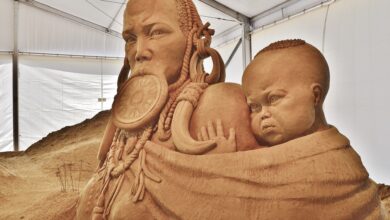Top 10 Most Spoken Local Languages in Africa

- Most Spoken Languages In Africa: KiSwahili (140 million)
- Hausa (120 million)
- Yoruba (50 million)
- Igbo (45 million)
Africa is a continent rich in linguistic diversity, with over 2,000 distinct languages spoken across its regions. Despite the influence of colonization and the adoption of European languages such as English and French, many local languages thrive, reflecting the continent’s cultural richness and historical complexity.
Here are the top 10 most spoken native languages in Africa, according to WorldData:
Top 10 Most Spoken Local Languages in Africa
1. Arabic
Speakers: 213.7 million
Region: North Africa
Arabic holds the top spot as the most widely spoken native language in Africa. Its spread can be traced to the influence of Islam, and it is the official language in several North African countries, including Egypt, Morocco, Algeria, Tunisia, and Sudan. Arabic also serves as a lingua franca across the region, connecting people through trade, religion, and culture.
2. Swahili
Speakers: 100-150 million
Region: East Africa
Swahili, a Bantu language with Arabic influence, is widely spoken across East Africa. It is the official language of countries like Tanzania, Kenya, and Uganda, and serves as a key medium of communication in nations such as the Democratic Republic of Congo, Rwanda, and Mozambique. Swahili is easy to learn for Arabic speakers and has global recognition through pop culture, such as Disney’s The Lion King.
3. Hausa
Speakers: 66.4 million
Region: West Africa
Hausa is a Chadic language spoken mainly in Nigeria, Niger, and parts of Chad. It plays an important role in trade, media, and administration in West Africa. Hausa has a strong literary and cultural presence and is one of the most prominent languages in Nigerian media.
4. English
Speakers: 48.2 million
Region: Widespread across Africa
Although not indigenous to Africa, English is spoken by millions as a first or second language due to colonization. English is the official language in countries like Nigeria, Ghana, and Kenya, and it is widely used in education, government, and business across the continent. In many homes, English serves as the primary language of instruction.
5. Oromo
Speakers: 41.7 million
Region: Ethiopia
Oromo is the language of the Oromo people, the largest ethnic group in Ethiopia. It is a Cushitic language with a rich oral tradition and cultural heritage. Oromo is used in education, media, and government, and efforts are being made to promote its wider use within Ethiopia.
6. Yoruba
Speakers: 41 million
Region: Nigeria, Benin
Yoruba is one of the major languages in Nigeria and is also spoken in Benin. With its tonal system, the language reflects a rich cultural heritage, evident in Yoruba art, music, and traditional religion. Yoruba has also influenced African diasporic communities, especially in Brazil and the Caribbean.
7. Igbo
Speakers: 37.2 million
Region: Nigeria
Igbo is spoken by the Igbo people in southeastern Nigeria. Known for its vowel harmony system, Igbo has contributed significantly to Nigeria’s cultural landscape through its literature, music, and folklore. It has millions of speakers worldwide due to the Nigerian diaspora.
8. Amharic
Speakers: 36.2 million
Region: Ethiopia
Amharic, the official language of Ethiopia, is a Semitic language with a unique script and rich literary tradition. It plays a crucial role in Ethiopia’s government, education, and media and holds great historical significance as the language of the ancient Ethiopian empire.
9. Fula (Fulfulde)
Speakers: 29.2 million
Region: West and Central Africa
Fula, also known as Fulfulde, is spoken by the nomadic Fula people across a vast stretch of West and Central Africa, including countries like Nigeria, Mali, and Senegal. The language serves as a means of communication for trade and is integral to the cultural identity of the Fula.
10. Malagasy
Speakers: 28.2 million
Region: Madagascar
Malagasy is unique as an African language, belonging to the Austronesian language family. Spoken primarily in Madagascar, Malagasy reflects the island’s distinct historical and cultural ties with Southeast Asia. It serves as a unifying language for the diverse ethnic groups on the island.
Conclusion: Africa’s Linguistic Tapestry
The diversity of African languages reflects the continent’s rich cultural history and its adaptation to various external influences, including colonization and trade.
While many African nations have adopted European languages as official tongues, the continued prominence of indigenous languages like Arabic, Swahili, and Hausa underscores Africa’s vibrant linguistic heritage.
These languages are not just means of communication but are carriers of identity, culture, and history, ensuring the preservation of African traditions for future generations.




